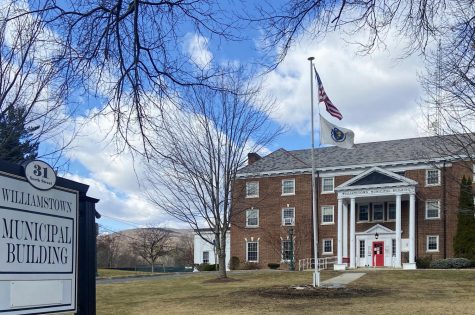Williamstown Planning Board approves marijuana growth bylaw; Select Board to make final decision
March 17, 2021

The Town Planning Board unanimously passed a bylaw at its March 9 monthly meeting that would allow residents of Williamstown to cultivate cannabis. The motion has been passed on to the Town Select Board, which will review the motion at its March 22 meeting.
The Planning Board is a five-person committee of elected, unpaid Town residents primarily concerned with land use issues in Williamstown. It approves development projects, deals with town zoning issues, and focuses on long-term policy regarding development and economic growth while monitoring its effects on the community and the local environment. The Select Board, the Town’s elected executive body, acts as a check on legislation after the Planning Board before anything is brought to the annual town meeting, during which Town residents can debate and vote on legislation.
During its virtual meeting on March 9, the Planning Board discussed several land development and zoning issues before moving to a vote to finalize the details of the proposed marijuana growth bylaw.
The bylaw permits plots of up to 100 thousand square feet for outdoor cannabis growth. Committee Chair Stephanie Boyd told the board that the size restriction was a “conservative approach” proposed by the Massachusetts Cannabis Control Commission (CCC) based on regulations in other areas and the state of the cannabis market. The board also recommended using setbacks and nuisance laws, regulations that require the plots to be a certain distance from other properties, to legislate concerns about potential odor generated by cannabis plots.
During the meeting, Boyd updated the committee about the many steps the Planning Board had taken to get the bylaw reviewed and approved. She said that the bill had been sent to major town committees such as the Agricultural Commission (AC), the Finance Committee, and the School Committee in order to receive comments from community leaders before it moved forward.
Boyd noted that the Planning Board has taken the committees’ recommendations into account by addressing concerns. After members of the Select Board worried about clearcutting forests to make space for cultivation, Boyd said that they made certain efforts to curb this, although she was unsure as to whether they could prevent it altogether. At the recommendation of the AC, the board altered the definition of indoor and outdoor cultivation of cannabis to give farmers the ability to continue to grow crops during different seasons.
Boyd also mentioned that the Planning Board had reached out to the Diversity, Inclusion, and Racial Equity (DIRE) committee to help ensure that the opportunities provided by the bylaw would sufficiently reach BIPOC communities.
Before proceeding to the vote, Boyd opened the floor to comments from the town residents present at the meeting. One citizen raised concerns that the odor from cannabis farms would spread into neighboring communities and disturb residents, referencing a report from Great Barrington indicating that the smell would spread throughout the Town. They also said that placing cannabis fields near schools would distract students and could be especially triggering for those who are already suffering from drug addiction. Finally, they argued that since many farms have intense security and even armed guards, the Town was potentially putting nearby children at risk.
In response, several other residents refuted concerns about the cannabis smell. They noted that the CCC did not mention the smell as a concern, and some pointed out that while this may have been an issue in Great Barrington or elsewhere in the country, there was no evidence that the cannabis smell would be a problem in the Williamstown environment.
Other attendees spoke against the argument that cannabis farming could cause drug relapses for students and other town members, asserting that the smell of marijuana is unlikely to cause someone’s addiction to recur. Some said that they believed the claim to be unfair and offensive.
Once the discussion had subsided, the Planning Board proceeded to unanimously approve the measure. The measure now heads to the Select Board, which will likely discuss the issue at its next meeting on March 22. If the board approves the bill, it will then go on to the town meeting, which will likely occur in June. The bill will require a two-thirds majority vote at the town meeting to officially become law.








